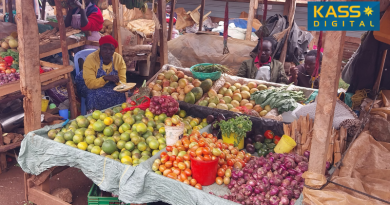Counties to gain from the new digital health plan following Devolution 2025
By Chemtai Kirui | NAIROBI, Kenya.
A nationwide plan to digitise health services will roll out over the next five years, covering all 47 counties in a push to expand access to doctors and improve patient management.
This plan was announced at the close of the Devolution Conference in Homa Bay on Friday, Health Cabinet Secretary Aden Duale unveiled the Digital Health Agency’s five-year Strategic Plan alongside a new Certification Framework for Digitisation.

He said the initiatives will allow counties to phase out paper records, expand telemedicine, and train health workers on new systems.
Under the framework, no digital health tool can be used in public hospitals unless it is first certified by the government. Each platform—whether a telemedicine app or an electronic medical record system—must prove that it is safe for patients, can connect smoothly with other systems, and protects patient privacy.
Officials say this will ensure that systems in counties can “speak” to each other, helping clinics and hospitals share patient data in real time, streamline referrals, and cut delays in care.
“We are accelerating the adoption of digital health, and our experience demonstrates that Kenya can deliver a good model for Africa,” Duale said.
The Ministry of Health says government-certified digital systems will strengthen disease surveillance, speed up patient management and allow counties to plan resources in real time.
Some facilities are already piloting biometric patient identification and online registration.
According to the Ministry of Health, about 15,000 devices have already been distributed, with a target of 74,000 nationwide. These reforms, they say, aim to make the benefits of devolution more tangible by reducing disparities in access to medicines, equipment, and specialist care.
Delegates in Homa Bay, however, cautioned that high costs, weak infrastructure, and limited training for health workers remain major hurdles. They said sustained funding and political support will be critical to achieve measurable results.
Counties also showcased digital health pilots, with Makueni drawing national attention for its pioneering use of Proximie technology in healthcare. This digital surgery platform enables remote surgical guidance, allowing specialists to assist local surgeons in real-time, regardless of distance.
The initiative aims to improve surgical outcomes and reduce referral costs, particularly in underserved regions. Makueni’s adoption of this technology underscores the county’s commitment to integrating digital solutions to improve healthcare delivery.
These digital strategies form part of the government’s Bottom-Up Economic Transformation Agenda, aimed at improving equity and efficiency in public services.
The approach mirrors programmes in countries such as India and Australia, where similar frameworks have expanded telemedicine in rural areas—a model that the government hopes to replicate across counties.



